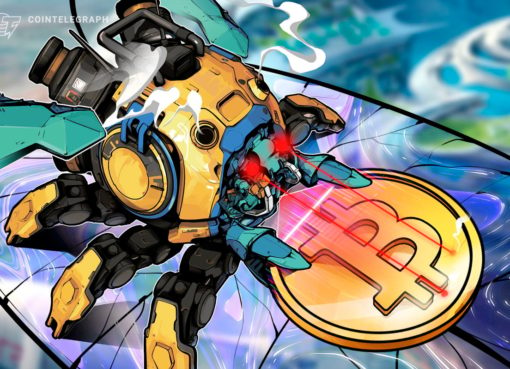The collapse of FTX has shown that where there’s smoke, there’s fire.
In a year filled with jaw-dropping unveilings, none compare to the bewildering fall of Sam Bankman-Fried’s FTX exchange. While many were stunned, there were a few tell-tale signs that may have indicated not everything was peachy-perfect over at FTX headquarters.
These issues began to compound and, on Oct. 5, I published a detailed commentary about my decision to begin pulling funds out of FTX and short FTT.
Im taking all of my capital out of @FTX_Official and going short $FTT
FTX has been swinging and missing all year long on so many activations
AND
Something shady is going on at FTX.
Here’s 12 reasons why I’m completely out on the FTX mafia and @SBF_FTX:
[1/20] pic.twitter.com/ECrhQn5Rjx
— Ishan B (@Ishanb22) October 5, 2022
The bottom line is that things didn’t seem right. A month later, we’re witnessing the fallout.
This is not meant to be a victory lap, but rather an opportunity to learn from our collective mistakes and create the systems necessary to prevent this level of fraud from happening again.
Now, we have strong allegations that what happened constituted fraud — at the highest levels, by the least conceivable party. Here are some reasons these circumstances were foreseeable, and how they can be fixed in the future.
Top executives leaving
While hindsight is 20/20, the string of top FTX executives leaving should have been a giant red flag. Alameda Research CEO Sam Trabucco announced his resignation on Aug. 24, followed by FTX US CEO Brett Harrison on Sept. 27. On Oct. 3, it was reported that FTX’s head of over-the-counter and institutional sales, Jonathan Cheesman, had also left the firm.
Related: Will SBF face consequences for mismanaging FTX? Don’t count on it
Cheesman and Harrison were at the firm for a little more than a year. Without knowing the specifications of their deals, equity is typically vested over a multi-year horizon. So, why would top executives leave without fully vesting their equity in a rapidly growing, $30 billion firm?
Poor business performance
As a private company, it was difficult to fully grasp the financial outlook for FTX, but there were signs of trouble.
First, trading volume was down significantly. It had decreased to December 2020 levels. Levels that hadn’t been seen since the monumental bull run began.
Lack of volume directly correlates to lower revenue. This, coupled with the growth of decentralized competitors such as Gains Network and GMX, meant that the business could not have been at its healthiest — but FTX was still spending as if it was:
- The FTX NFT marketplace gained minimal traction but must have been quite an expensive endeavor.
- They had recently agreed to a $212 million deal for naming rights to the Miami Heat arena.
- FTX Ventures, the company’s venture capital arm, had consistently made large, late-stage investments. Massive check sizes into highly illiquid positions.
FTX US then launched FTX stocks to offer U.S. investors exposure to equities — a weird product extension for a crypto-native firm. Why not provide more crypto-related products or create solutions to help the industry? Even then, it seemed like a weak attempt at recovering some lost revenues from the reduction in volume.
How we can fix this
A wise man once said, “Life’s greatest lessons are usually learned at the worst times from the worst mistakes.”
So, what are the most important lessons to learn from these times? Decentralization. Decentralization. Decentralization.
Related: Let’s move on from FTX’s collapse and get back to the basics
This has been at the core ethos of the decentralization of finance, yet we still need a Lehman Brothers-type collapse to re-learn the importance of this lesson.
Decentralization necessitates a trustless environment where information can be verified at any time. For example, if you think that FTX might have a $5 billion-plus hole in its balance sheet, you need to be able to verify how true that is. The problems arise when these simple questions are purposely obscured to defraud institutional and retail investors.
Why is decentralization important?
Oke so dk if anyone noticed that FTX/Alameda repaid 18.5m $MIM yesterday, leaving just abt 33m left to repay…
Now, given 75% LTV, $FTT could theoretically damp all the way to $7.84 until h-factor below 1 — tho Abra is supposedly working w them to repay asap
Should prob b fine https://t.co/ntrab01cdU pic.twitter.com/bN8c9Wcfbo
— Barry Fried (@BarryFried1) November 6, 2022
Decentralized finance (DeFi) doesn’t give special treatment. It doesn’t trust you no matter how many times you’ve been on CNBC or Bankless. If you have a loan, it must be repaid or it will be liquidated.
Decentralized finance is the great equalizer. It continued running without any hiccups amidst one of the most monumental, unforeseen collapses in the history of finance.
You know what handled all withdrawals, liquidations, and market volatility flawlessly today? With transparency, and efficiency to boot?
Compound, and many other DeFi protocols.
— Leshner (@rleshner) November 8, 2022
What’s next
Many DeFi advocates believe that we are simply speed-running the history of finance and all the lessons we’ve learned about money, finance, economics, etc., over the last 2,000 years. That’s a possibility.
While the implosion of FTX may be a deep blemish on the industry as a whole, there’s still much to be excited about. Let’s take this as an opportunity to double down on the importance of self-custody, trust minimization, and permissionless, open-source access — the true ethos of this space.
Lastly, let’s remember never to trust larger-than-life figures that evolve from the crypto space, no matter how effectively altruistic or perfect they may seem. Trust no one and verify.
Ishan Bhaidani is a content manager at Serotonin, a Web3 marketing agency. He graduated from the University of Texas at Austin’s McCombs School of Business with a BBA in finance and statistics.
The opinions expressed are the author’s alone and do not necessarily reflect the views of Cointelegraph. This article is for general information purposes and is not intended to be and should not be taken as legal or investment advice.




